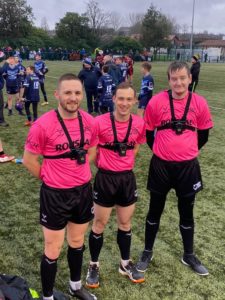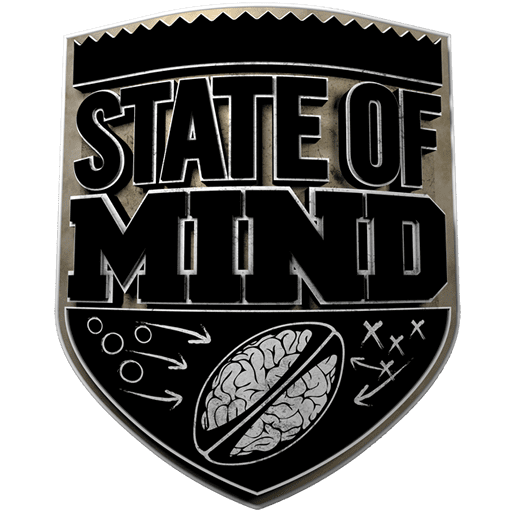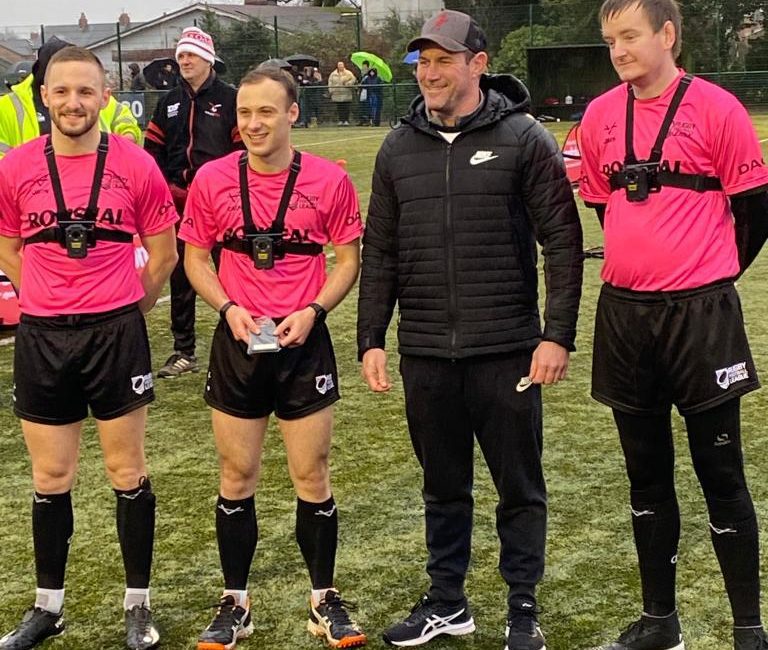State of Mind Sport have teamed up with St Helens and Huddersfield Referees Societies to ask if they thought using body cameras in games would be a useful thing to do
Sports match officials are integral to many team sports. Without them, many of the most popular sports in the world cannot take place.
The crucial role match officials play allows participants in the sport to keep healthy, and taking part in this sport has a positive impact on the mental health of those participants.
The skill set required to be able to officiate at the highest levels in any sport is immense.
In rugby league, the skills include delivering a high accuracy rate for thousands of decisions whilst vigorously exercising, taking on board large amounts of information, reading and understanding the game, managing the game, and maintaining knowledge of the rules. Officials must be self-confident and excellent communicators, with a firm manner.

They also must build a rapport with athletes, be exceptionally aware of their own positioning in order to make accurate decisions and work as part of a team of officials when required.
The role requires great concentration, composure and physical fitness, as professional match officials will cover over eight kilometres in a game of rugby league. This includes sprints, with heart rates reaching up to 150 beats per minute (Emmonds et al., 2019) whilst remaining composed, in control and mentally resilient.
It would be logical to think that these vital components in the sporting machine would be revered and profusely thanked for their endeavours every weekend, from professional to grassroots levels of the sport.
Yet sports match officials are routinely exposed and subjected to different forms of abuse.
The consequences of abuse on officials is an under-researched subject area where mental health nurses could make a difference. If match officials are constantly working in a negative environment, this can hamper the ability of sports governing bodies to retain and develop match officials, and can contribute to officials dropping away from sport at all levels (Webb et al., 2020).
Any reduced numbers of officials can have a knock-on effect of reducing the amount of sport that is able to be played every weekend. The consequences of which could be far reaching in terms of the nation’s mental and physical health.
Two community rugby league referee societies (St. Helens and Huddersfield) agreed to take part in an initial survey questionnaire about the potential for using body cameras when refereeing in community rugby league games.

The results were taken from two referee societies in July to August 2021. The number of responses (33) from active referees (65) in the two societies which gave a response rate of 51% which is a high response rate for survey research and some of the responses can be seen below.
Over 50% of referee eligible to take part completed responses and gives an good indication of the views of community referees in relation to the potential use of using body cameras where refereeing.
Interestingly one of the participants was already using a head camera with the agreement of teams involved.
There was an even split in age ranges of participants 48% under 30 years and 52% over 30 years. The gender range was predominantly male (91%) and female (9%).
Responses were split between St. Helens Referee Society (61%) and Huddersfield Referee Society (39%). The numbers of referees who had received abuse when refereeing totalled 82% with 18% never having received abuse, this supports the research that referees are commonly abused whilst completing an integral role within the sport which contributes to referees leaving the sport (Webb et al., 2020).
A common issue across sports is the concern about how robust the disciplinary processes are for addressing the abuse of match officials and that this deters referees from reporting incidents of abuse.
The question to what extent would providing proof of abuse help match officials was responded with 76% of those responding scoring 4 or 5 (the highest rating scores available).
An overwhelming majority of respondents supported (91%) the use of body cameras deterring abuse. All respondents felt using a body camera would make it easier to provide proof of the types of abusive behaviour referees receive and could be used to help train and develop referees.
The abuse of match officials is routine and regular and not acceptable for anyone in sport. The feedback appears to provide a majority in support for the use or trial of the use of body cameras in the community game to be used as aid for referees in improving their game, to deter the amounts of abuse, provide evidence of abuse taking place and gice an insight of how difficult it is to be a rugby league referee.
Rugby league referees display super human skills every week and their reward is a spectrum of abuse for everyone who benefits from watching or playing rugby league.
Later this year we will be demonstrating a virtual reality experience for rugby league fans to try out to see how difficult it is to be a referee and challenge the view that referees are to blame when teams lose

